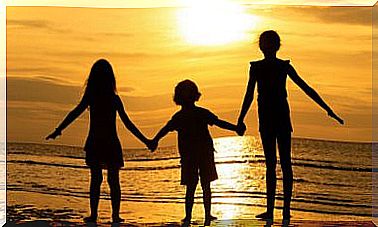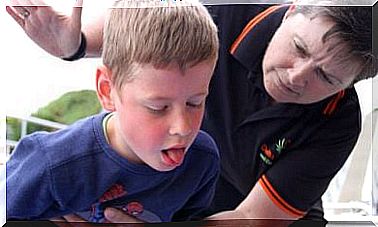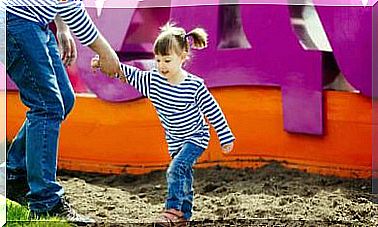Help Your Child Cope With The Death Of A Loved One
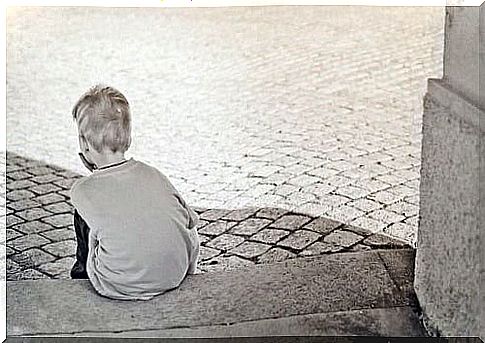
Losing a loved one can come as a shock to any person, although each copes with pain in their own way. Coping with the death of a loved one is very difficult for children and depends on their age.
Helping our children in this unpleasant and inevitable time becomes an extremely complicated task when we too are facing this painful grief.
In this article, we will offer you a number of tips to help your child overcome the death of a loved one.
A question of age
The attitude of the child in dealing with the disappearance of a loved one depends on his age, experiences and personality. According to these factors, the main problem is the very concept of death.
Preschoolers see death as a return journey, that is, as something that can be changed. Death is not definitive but modifiable. It is possible for them to go back, because they do not realize never again or forever.
Between the ages of five and ten, the child has realized the concept in a concrete way, even if he thinks that neither he nor his loved ones are exposed to this threat. He knows it exists but thinks it only happens to strangers.
In any case, facing the death of a person is not easy when it touches the family environment. It is essential to express our pain but also to help the child express his feelings, without feeling embarrassed or hiding.
It is important to observe the behavior of the child. Sadness is normal, but be careful if you continue to be overly sad, pretend that nothing painful has happened, or don’t accept the death of your loved one.
Bereavement in children
Mourners suffer from the inability to hug someone special again. When you have children, you suffer doubly: facing your own pain and that of your child.

As parents, we don’t want to see our little ones suffer. However, it is impossible to hide the passing of a family member or friend. Specialists say that waiting a long time to tell what happened can be harmful to the baby.
It is right to take children to funerals , it is a recurring question. It depends on you and the baby. According to experts, it is good for children to participate in the mourning ritual, if they so wish. But first you need to explain to them what happens at a funeral and let them decide.
Reactions of the child in the face of death
To help him cope with the death of a loved one, you will need to take into consideration how close he was to the deceased. The closer he was to him, the more marked will be the reaction with which he will externalize his pain in an abrupt way, in the form of nightmares, of an irascible and violent attitude.
Furthermore, the child may experience a regression in the developmental process. It may begin to behave in stages of growth that have already passed, to get our attention. For this reason, all these clues must be considered as symptoms of an incorrect grief processing.
Look out for clues such as the inability to be alone and excessive fear of the dark. The child’s social interactions can also show how he is coping with the death of a loved one, if he refuses to play with others, becomes isolated, and his school performance drops.
Some factors indicate a “pathological bereavement”: the loss of interest in things that previously attracted him, the loss of appetite, the desire to reach the deceased person, imitation or excessive talk of the deceased.
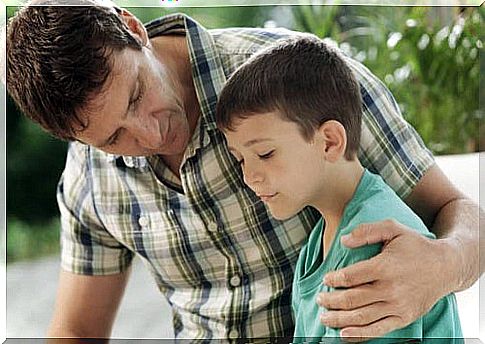
Language helps to cope with the death of a loved one
If you want to help your child, it is imperative to be honest with your child and encourage them to ask questions, even when you think you don’t have the answers. It is essential to create an atmosphere of trust and openness to bear this loss.
The ideal is to explain to the child the circumstances that led to this person’s death and, calmly and reasonably, that he will not be able to return.
Specialists recommend not using euphemisms such as “he has gone far” or “he is sleeping” or “he is lost”, as they can create a lot of confusion and arouse strange fears in the child.
Honest, simple, clear, and accurate language is essential for a child to cope with the death of a loved one. At the same time, children need some respite, to be understood and treated with patience in order to manifest pain in their own way.
